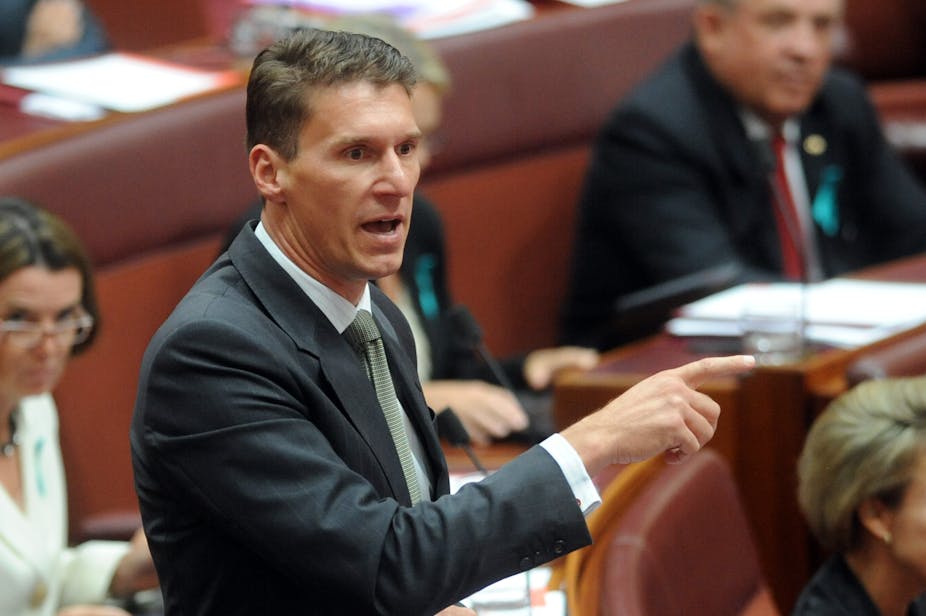Controversial Liberal senator Cory Bernardi will challenge the power of executive government and its desire to dictate to its senators in a provocative speech this week.
Bernardi, a South Australian who is close to Tony Abbott but had to resign as his shadow parliamentary secretary over comments claiming same-sex marriage could be a slippery slope to polygamy and bestiality, will argue that the Senate should fulfil its originally conceived function of being a states’ house.
He will urge that it should also become a more robust and independent house of review.
With the government battling to get its legislation through a hostile upper house, Bernardi’s idea of a Senate that would be even more challenging and difficult to manage is not likely to get much positive response among senior Liberals.
But Bernardi, who early this year published The Conservative Revolution, a manifesto of his views on abortion, gay marriage and other issues, is seeking to promote his profile as a generator of ideas on the right.
He was one of the group who challenged then opposition leader Malcolm Turnbull over climate change, which led to Abbott replacing Turnbull. He is also a strong critic of the ABC, believing that its activities should be cut back.
His speech, to the National Press Club on Thursday, will canvass the current disillusionment people feel about politics and especially the two major parties.
He says people have lost faith in politicians’ words, actions and deeds, contributing to the astounding result that, following the last election, the new Senate has 18 crossbenchers.
This is not unique to Australia; in fact, Bernardi points out, the development is rather late here. Similar anti-establishment politics has taken root in Europe, Britain and the United States.
“A more independent role for the Senate would be one way to help restore greater public faith in our political system,” he told The Conversation tonight.

